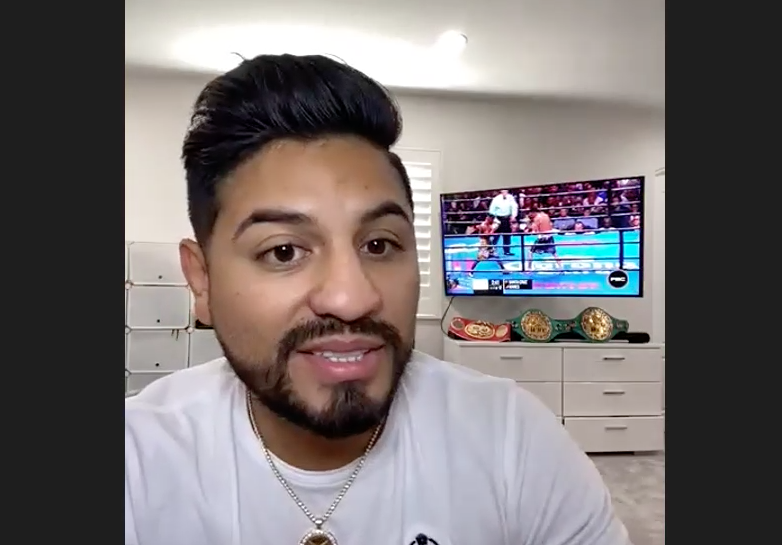As a champion prizefighter shared his story, students from OCDE’s alternative education program had virtual ringside seats.
Abner Mares, who has won titles in three weight classes and served as a TV analyst on Showtime and Telemundo, reflected on his journey to a successful boxing career and offered some inspiration to high schoolers in the Orange County Department of Education’s ACCESS division during a special video chat on Wednesday, Nov. 18.

In doing so, he became the first guest speaker in a new series called “Careers without Borders,” launched by Principal Vern Burton, who oversees Area 3 in ACCESS, and program specialist Nathan Goodly.
Burton said about 100 students and staff participated from their classrooms and homes via Zoom, using the chat feature to submit questions.
“It was an incredible success,” he said. “We’re constantly looking for ways to engage students during this pandemic, and Zoom has offered a wonderful opportunity to have speakers share their stories from the comfort of their homes.”
Mares, who moved to Hawaiian Gardens from Guadalajara, Mexico at age 7, struck an encouraging and relatable tone as he went a few rounds on the challenges he faced early in life and his path to becoming a four-time world champion.
“We used to go to the big grocery stores and go into the dumpsters, where they threw away the food that had expired,” he told students. “I was one of those kids that would go in there with my family, get the food, eat and survive.”
After returning to Mexico as a teenager, he got his first tryout with the national boxing team at age 16. He went on to represent his native country in the 2004 Summer Olympics in Athens, the Pan American Games and other international tournaments before turning pro.
“I didn’t have it easy, but that didn’t mean I was going to give up on a dream, give up on myself, give up on my future in life,” he said. “Everyone goes through their struggles in different ways. That was my way — hunger, poverty, gang violence.”
ACCESS, short for Alternative, Community and Correctional Education Schools and Services, serves more than 10,000 students a year, including young people who have encountered significant academic and social obstacles, along with others who simply thrive in non-traditional settings.
Mares, 34, said he was enrolled in a continuation program when he was a teenager, and although he didn’t finish high school then, he did later, as an adult.
He said he wanted to set an example for his daughters. Now he’s an example to many more.
“I was the guy who didn’t finish high school at the time — a dropout, continuation school, I didn’t think I deserved this,” he said. “But opportunities are there. It’s just a matter of taking them and taking the risks.”
